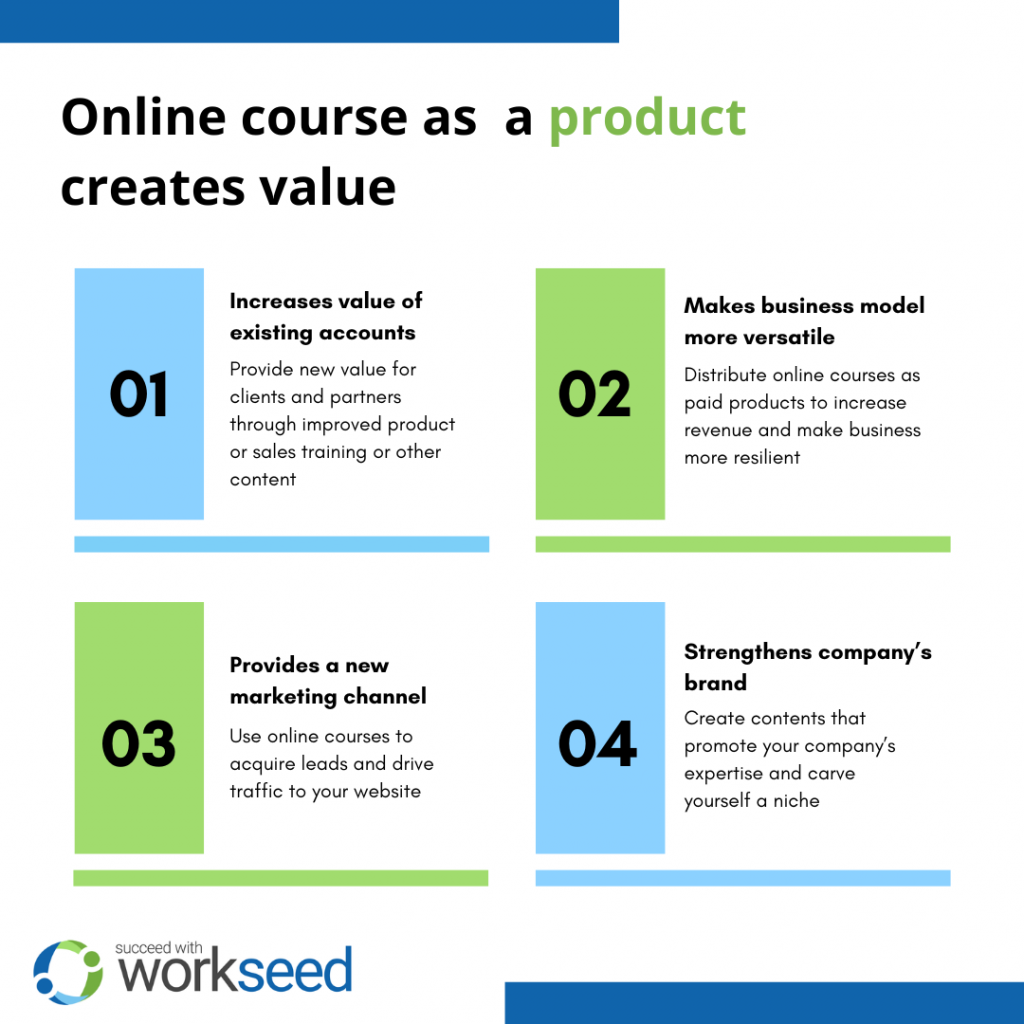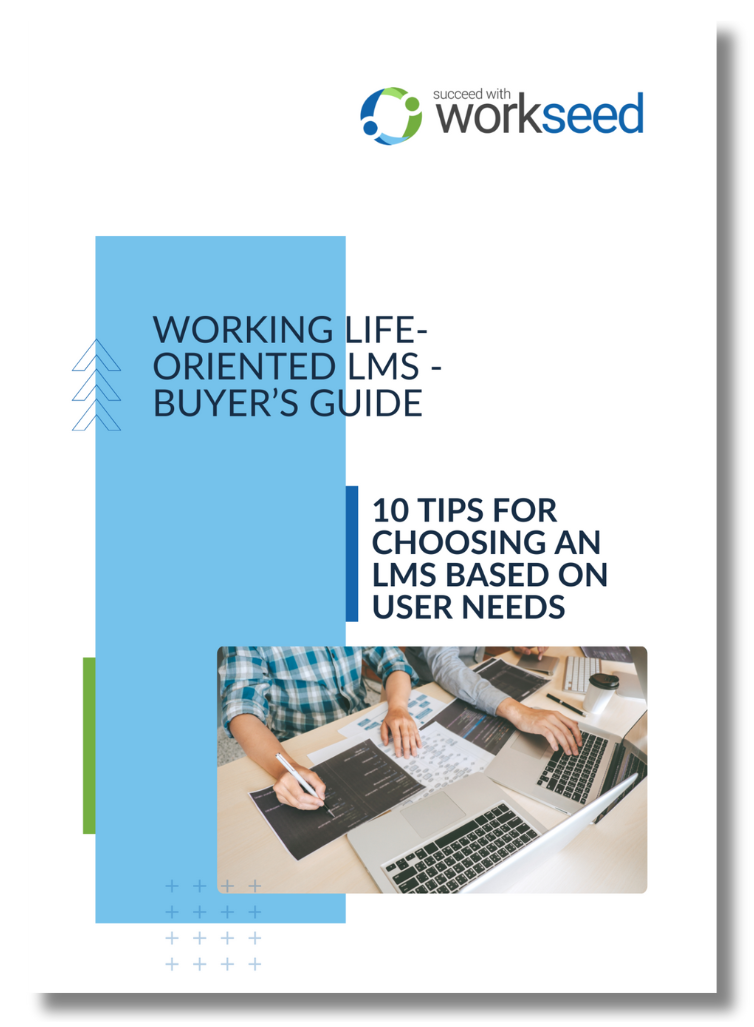Online courses and digital learning materials are a central component for most corporate training. They have a solid use case for new employee onboarding, continued employee training, and lifelong learning.
Online courses are not only a valuable resource for internal training. On the contrary, there are numerous reasons to commercialize and distribute online courses outside the organization. Online course as a product can be a central part of a company’s after sales strategy.
After sales are easy to ignore
After sales consists of managing relationships with a client after closing a sale. Its purpose is to increase sales to an existing client and improve the value of an account throughout the life cycle of the purchased product or service. Often after sales includes expert services, maintenance, training and other similar services.
According to research, acquiring new clients is more expensive for companies than increasing the value of existing clients. Long-term relationship management is the best way for companies to increase sales. However, it is very common for companies to prioritize selling the core product, while ignoring possibilities for strategic after sales.
This article is meant to evoke thoughts and provide ideas on how to use online an course as a product to improve sales and account value. Furthermore, we will discuss how distributing an online course as a product impacts selecting an LMS provider.
Online course as a product extends core business
Online courses already play a pivotal role in internal training and HR. At the same time, online courses have the potential to become products that can be used to sell expertise. Online courses are also a cost effective alternative for traditional training that also scales well.
Creating an online course as a product can provide a company several benefits.
Online course as a product increases account value. Online courses can provide value for existing clients and increase the value of a client during the entire product life cycle. Product trainings or other contents can help users make the most of the product, increase sales, and improve the relationship with the client.
Online course as a product diversifies business models. Distributing online courses as products commercializes resources that are otherwise difficult to sell. Online courses allow companies to sell expertise and human resources, broaden business portfolio, and increase cash flow.
Online course as a product supports marketing. In addition to providing increased sales, online courses can be used as a tool for marketing. Free or discounted courses can help create leads, bring visibility to other products the company sells, or work as a loss leader for other training programs. Online courses can reach a broader audience than many other marketing content forms.
Online course as a product builds a brand. Digital contents help companies strengthen their brand and public image. Courses can help create credibility and goodwill, distinguishing companies from competitors. They can make companies and their product portfolios more known on the market.

Distributing online courses on e-commerce platforms
E-commerce platforms are an excellent way to organize the logistics of online course distribution. It is easy to provide online courses as a digital product, provide sufficient description of course contents, improve SEO, manage payments, and provide access to course platforms.
There are numerous different platform providers that suit the needs of any organization, independent of size and resources. There are flexible platforms that can be adapted to a companies’ needs (like Woocommerce) or easy to manage platforms for small organizations (like Shopify).
E-store alone is not enough to distribute an online course as a product, however. An LMS to create, publish, share, and manage courses is also needed. Preferably one that can easily be used together with the chosen e-commerce platform.
How to choose an LMS for selling courses
In case you are choosing an LMS for your organization, consider how well it supports distributing the courses online. Is it for instance possible to manage users automatically, notify users, manage content licenses and so on. Furthermore, take into consideration:
Integrations between e-commerce platform and LMS. Optimally the learning management system provides an easy integration to the e-commerce platform. Integration reduces manual labor and makes managing new users easier. In the best possible case the LMS has ready API to the most common e-commerce platforms, so that activating the integration requires little technical work.
Fast content production. The learning platform should make it easy to create, publish, and manage high quality learning materials. The workflow for creating new original courses or importing for instance H5P materials should be simple and intuitive. Ready courses should be easy to commercialize for distribution on the e-store.
Managing certificates and completed studies. Many organizations need to manage completed study modules and create certificates for participants. The LMS platform should make this easy.
Publish online courses with ease using Workseed LMS
Workseed learning environment manages the entire process of digital learning management, including content creation, distribution, monitoring, and analytics. Now Workseed even supports distributing online course as a product.
Workseed now provides a ready-made integration to Shopify and Woocommerce platforms. Our tech team can also develop integrations to other platforms according to customer needs.
In case you want to know more about the online store integration, you can book a demo here. Our experts will help you define how Workseed can be used to improve after sales and diversify your product portfolio easily.
In case you are already considering acquiring an LMS, we recommend you familiarize yourself with our tips on how to choose an LMS based on organizational needs here.










